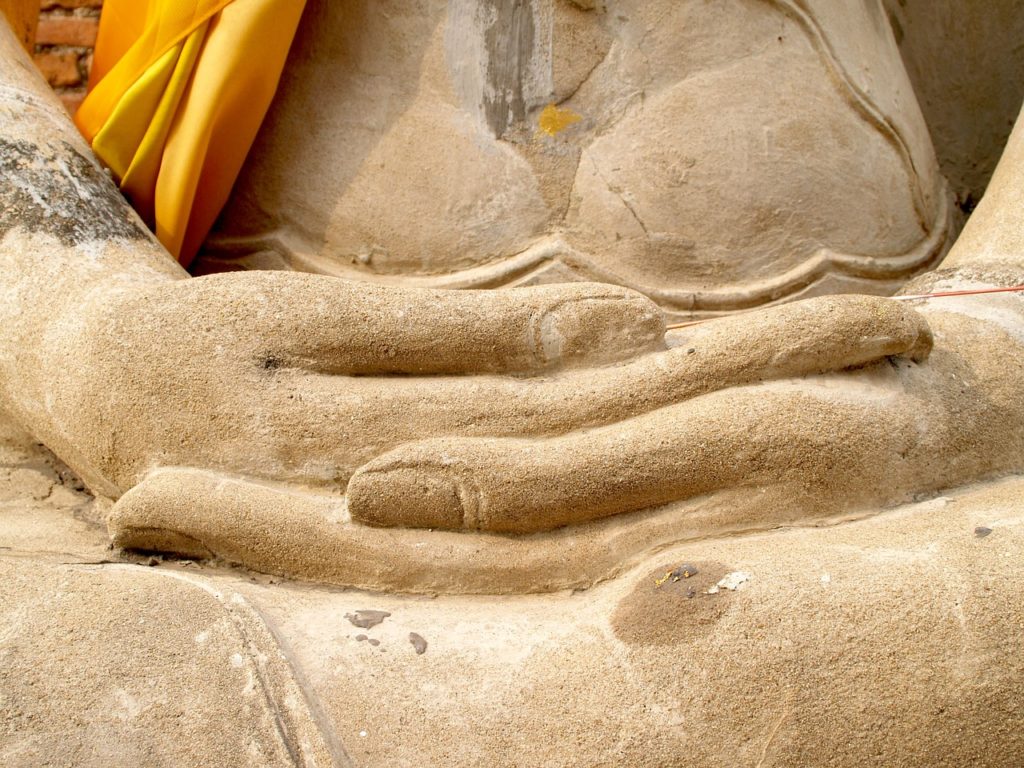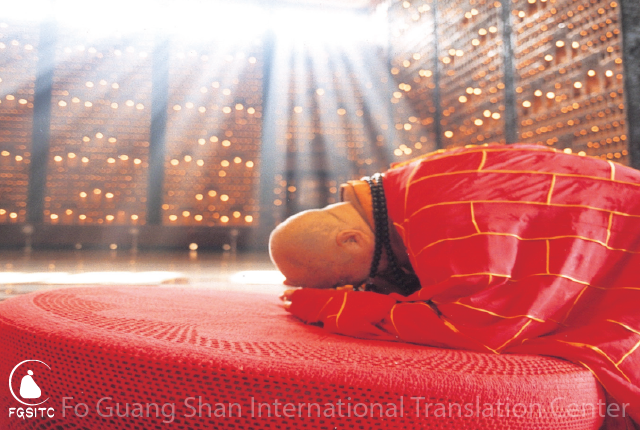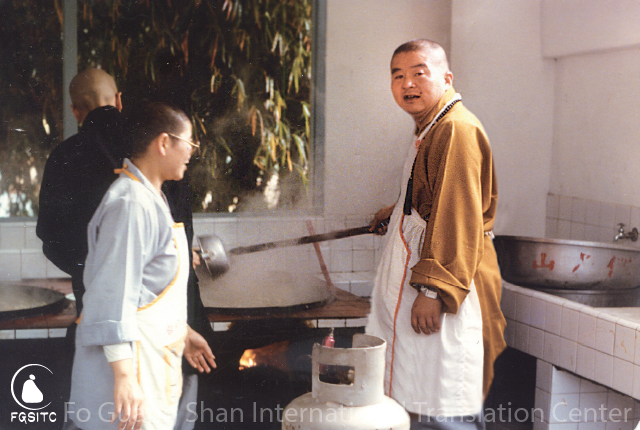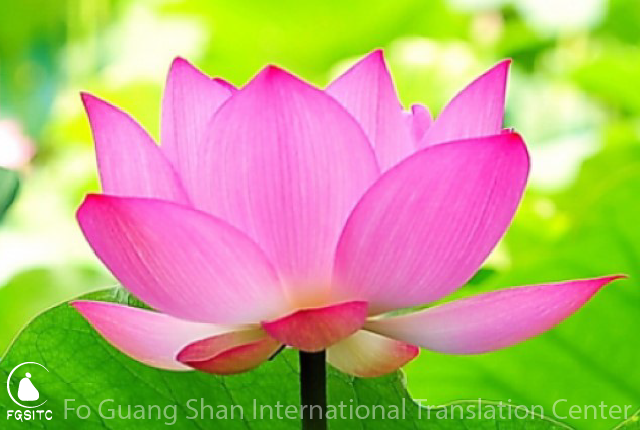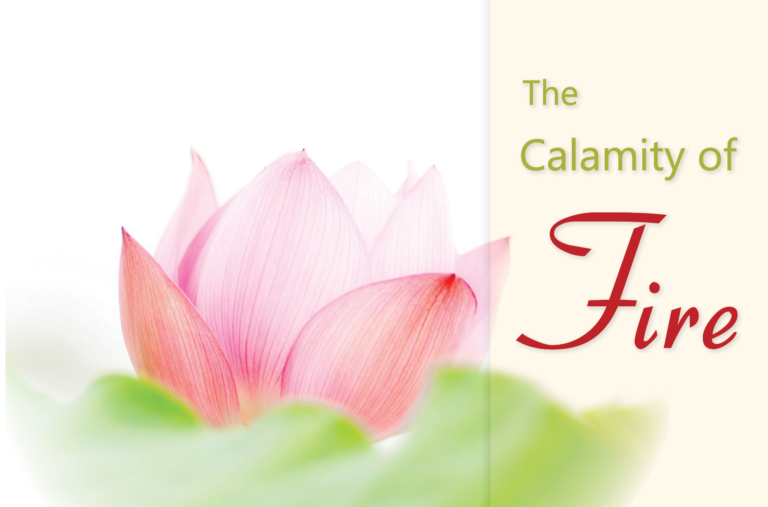The Sumati Sutra discusses fulfilling both worldly and supramundane needs. Sumati’s first three questions are regarding obtaining an elegant appearance, obtaining wealth, and keeping a harmonious family life—all of these are concerned with success in this life. Being satisfied in this way ensures that a bodhisattva will not be hindered, and can freely walk the bodhisattva path.
Rewards and blessings are not stolen, forcibly taken, or acquired through wishful thinking. And they are certainly not attained by engaging in resentment. Where do rewards and blessings come from? As the saying goes, “You reap what you sow.” When we do wholesome deeds, good karmic effects will follow. If we do not form positive connections, how can we expect rewards and blessings to come? We create our own rewards. If you want to do so as well, the Buddha described four methods how.
1. Give Timely Gifts
The greatest wealth in the world is understanding how to give to others. The greatest poverty is greedily coveting what others have.
Giving is the most wonderful action in the world. Speaking wholesome words, smiling, expressing gratitude, and serving others are all ways to give. Excellence in giving is a way to beautify our lives, purify society, and maintain harmony between people.
Most people give to themselves easily, but find it difficult to give to others. However, if you do not sow any seeds, what can you harvest? If you do not give to others, how can you expect to have wealth?
Some people mistakenly believe that giving means only offering money or material good. If that were the case, how could poor people afford to give anything? The Buddhist concept of giving includes giving wealth, giving Dharma, and giving fearlessness. “Giving wealth” means providing for the physical needs of others through giving clothes, bedding, medicine, and other such necessities.
“Giving Dharma” means using knowledge, skills, and truth to help others. “Giving fearlessness” is a matter of acting in accordance with righteousness and truth, eliminating cruelty and ensuring peace in society, offering spiritual comfort to sentient beings.
To “give timely gifts,” means giving at the right time. If a person is not in need and you give abundantly, then it is just like adding even more icing on an already frosted cake. On the other hand, if someone is in need and you give him nothing, you are truly throwing him to the dogs. Providing help when it is needed is the true spirit of giving.
2. Give without Contempt or Arrogance
The next three methods mentioned by the Buddha are how we give:
Giving without contempt or arrogance, giving joyfully, and giving with no expectation of reward.
It is easy to give, but to do so without any contempt or arrogance, and with no notion of a giver, a recipient, or a gift is hard. The Diamond Sutra teaches to see these “three spheres” (giver, recipient, and gift) as empty, so that we can give with no notions at all. This is the highest form of giving.
Generosity is not about how much is given, but instead on the sincerity of the intention. When we give, we should not obsess over matters such as having versus lacking, rich versus poor, or superior versus inferior. We should give with an impartial heart. Givers should thank recipients for the opportunity to cultivate wisdom and merit, just as temple donors pay homage to the Buddha for the chance to plant the seeds of generosity and merit.
For us to develop respect and veneration for others, we must cultivate our own body and mind. Those who wish to develop a noble character should be humble and polite with everyone. Always remember to say “please,” “thank you,” “I’m sorry,” and frequently offering others praise and encouragement.
3. Give Joyfully
No matter what we do, it is crucial that we do so joyfully. When we do things unhappily and in a half-hearted manner, no merit is gained. Conversely, when we do things joyfully, we will find that joy itself is the best reward there is. We will not feel a need for merit, as long as there is joy.
A joyful mind is a source of energy. It can cause a person’s mind to become satisfied, magnanimous, wise, and faithful. A mind like this is a wellspring of happiness. Joy can be found in sincerity, such as being sincere and truthful with others. Joy can be found in providing support, as when friends mutually support and guide one another.
There is joy in seeing through illusion and finding liberation. There is joy in taking worldly affairs down from their pedestal and accepting impermanence. Being free from sorrow and suffering is yet another form of joy.
Having joy in our hearts is an essential component of true giving. We should respect the recipient of our gifts, and not feel stress or awkwardness when we give. Joyful giving increases our merit and wisdom.
4. Give with No Expectation of Reward
Worldly happiness is born of attachment or greed. In Buddhism, true happiness is defined as that which is without attachment or desire. Those who take emptiness as their happiness offer loving-kindness and compassion to others, seeking nothing back in return. Even if their good deeds go unrewarded, they should not linger over such outcomes.
A greedy mind can never be satisfied. Money and material possessions in this world are limited, but humankind’s capacity for desire is limitless. If greedy people are made wealthy, they become wealthy poor people. Only people who understand contentment are always happy. Such people are the truly wealthy.
When we give, we should not desire that others remember and repay our kindness. Sometimes, asking for no reward when helping others allows us to profit more.
To give with no expectation of reward is the highest kind of giving. If we can give in this way it means we see the giver, the recipient, and the gift as empty, and can give with no notion of giving.
Not expecting any reward for wholesome actions is to have “no notion of giving.” Doing wholesome deeds merely out of desire for fame, reputation, bettering one’s position, or fear of a lower rebirth means that such acts are done with a notion of giving. As the Buddha says in Sumati Sutra,
(9) Give timely gifts without contempt or arrogance.
Do so joyfully, with no expectation of reward.
Strive onwards in this manner in your constant cultivation.
Therein wealth and noble status will be obtained.
Happiness
From Ten Paths to Happiness, written by Venerable Master Hsing Yun.
Image from Pixabay.






